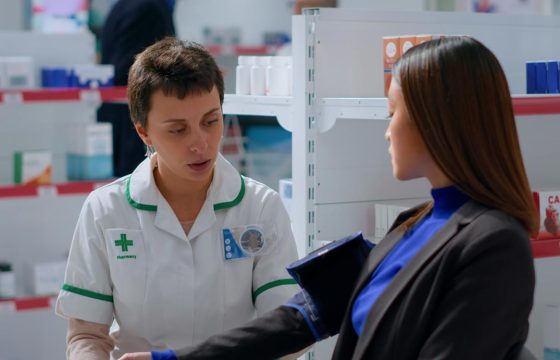Advertisment
BAD 2014 Report: Sunlight, skin cancer and vitamin D – getting the balance right

by Esther Drain – Skin cancer is now the commonest cancer in the UK and the incidence is rising, mainly due to people taking more holidays in sunny regions. Every year in the UK 13,000 malignant melanomas and 100,000 non-melanoma skin cancers (NMSCs) will be diagnosed. Basal cell carcinomas outnumber all other cancers put together. Just over 2000 people die every year in the UK from malignant melanomas.
Some people are more susceptible than others to the damaging effects of ultra-violet (UV) radiation – people with fair skin, outdoor workers, people with a previous history of NMSC and immunosuppressed individuals, such as organ transplant recipients (see story below on actinic keratoses).
Avoiding unnecessary exposure to sunlight is an important measure and awareness of the UV index is essential for this because sometimes even on a cloudy day the UV index can be high. The BAD in collaboration with the Met Office has produced a free App (World UV App) that allows people to find out the UV index on a given day anywhere in the world http://www.metoffice.gov.uk/health/healthissues/uvandsunhealth/uvapp.
Vitamin D
Sunlight (UVB) is required for vitamin D synthesis and this is essential for bone and muscle function, Professor Lesley Rhodes told an open forum meeting. About 15 minutes of sunlight on unprotected skin is all that is needed for satisfactory vitamin D synthesis.
There is still uncertainly about the ‘right’ level of vitamin D and what, if any, supplements are required. Earlier recommendations were primarily concerned with avoiding deficiency diseases such as rickets, rather than optimising health. This is an important issue in the UK because common foodstuffs are not fortified with vitamin D as they are in some other countries. Three bodies are working on this now and a report is expected in 2015, explained Professor Rhodes. Public Health England (PHE) is examining UV radiation, the Scientific Advisory Committee on Nutrition (SACN) is reviewing the dietary reference values for oral vitamin D and the National Institute of Health and Care Excellence (NICE) looking at the implementation of guidance.
Actinic keratoses – precursor lesions skin cancer
Actinic keratoses (AKs) are common pink, red or brown scaly lesions of the skin caused by exposure to sunlight. About 10 per cent of AKs transform into skin cancers but at present there is no way of predicting which ones are more likely to transform. It is estimated that 60-80% of squamous cell carcinomas (SCCs) started as AKs.
Immunosuppressed people are 250 times more likely to develop AKs and 100 times more likely to develop SCCs than non-immunosppressed people. Thus, photoprotection is an important measure for this group.
A recent two-year, randomised controlled trial in transplant patients comparing sun protection advice plus a photoprotection product (treatment) with advice alone (control) showed that in the treatment group the number of AKs decreased and there were no new SCCs whereas in the control group the number of AKs and SCCs increased. (Ulrich et al BJD 2009). The product used in the trial was Actinica – a photoprotection product containing mixture of chemical filters with an estimated SPF of more than 60 (for UVB). It also provides good UVA protection. Actinica is licensed as a medical device and so can be supplied through community pharmacies.
Fiona Loud, Policy Director of the British Kidney Disease Patients’ Association (BKDPA) commented that living well after the operation is the aspiration of all transplant patients. She argued that sitting in the sun should not be demonised because it is part of feeling normal and well. What transplant patients need is honest, balanced information about the risks and photoprotection measures and regular, twice yearly skin examinations. Front line staff can help by finding out what skin services the local transplant unit offers and reinforcing patient education in this area. Signposting patients to the BKDPA can also be helpful.





